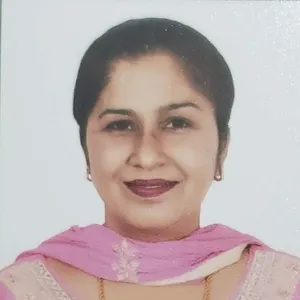Power sharing is the first chapter in Class 10 Political Science, and it lays the foundation for understanding how democracy works in real life. Through the examples of Belgium and Sri Lanka, the NCERT textbook explains how power can be divided among different communities and levels of government to maintain unity and avoid conflict.The chapter also explores why power sharing is not just a political arrangement but a basic principle of democracy.To understand this idea in detail, you can also refer to Part 2 – Why Power Sharing is Desirable.Below are some of the most important 3- and 5-mark questions from this chapter, answered in a clear and exam-ready format.
Q1. What is the ethnic composition of Belgium?
Answer:Belgium is a small country, but it has a very complex ethnic composition.
1. 59% of the people speak Dutch and live in the Flemish region.
2.40% of the people speak French and live in the Wallonia region.
3.1% of the people speak German, mostly in the eastern part.
4.In the capital city Brussels, 80% speak French and only 20% speak Dutch.
Q2. What is the ethnic composition of Sri Lanka?
Answer: Sri Lanka is an island country with people belonging to different language and religious groups.
*74% of the population speaks Sinhala and most of them follow Buddhism.
*18% of the people speak Tamil, including Sri Lankan Tamils and Indian Tamils.
*The remaining 8% belong to other communities, such as Christians, who speak both Sinhala and Tamil.
Q3. What steps did the Sri Lankan government take to establish Sinhala dominance?
Answer: After independence, the Sri Lankan government took many steps to make Sinhala the dominant community.
In 1956, Sinhala was declared the only official language of the country.
The government gave special protection to Buddhism.
Preference was given to Sinhala speakers in jobs and education.
Tamil people were denied equal rights and not given citizenship.
Q4. What steps were taken by the Belgian government to avoid conflicts among communities?
Answer:To keep peace among different communities, the Belgian government made several important arrangements.
1.Equal number of ministers from Dutch and French communities were included in the central government.
2.State governments were given more powers and were not under the central government.
3.In Brussels, both communities got equal representation.
4.A community government was formed to take decisions on cultural, language, and education matters.
Q5. What are the two main differences between the power-sharing arrangements of Belgium and Sri Lanka?
Answer:Belgium and Sri Lanka followed opposite paths to deal with community differences.
* Belgium shared power among all communities, but Sri Lanka gave power only to the Sinhala majority.
* Belgium respected the interests of every group, while Sri Lanka ignored the demands of the Tamil community.
Q6. What is the difference between horizontal and vertical power sharing?
Horizontal Power Sharing
*Power is shared among organs of government like legislature, executive, and judiciary
*All organs work at the same level and have different powers.
*Each organ checks the other to keep balance.
Vertical Power Sharing
*Power is shared among different levels of government like central, state, and local governments.
*Power is divided between higher and lower levels of government.
*Lower levels work under higher levels of government.
Q7. Why is power sharing desirable?
Or
“Power sharing is the very spirit of democracy.” Justify.
Power sharing is necessary in a democracy for both practical and moral reasons.
1. Prudential Reason:
It helps to avoid conflicts between different social groups.
It brings political stability by reducing tension in society.
It builds unity in the country by giving everyone a share in power.
2. Moral Reason:
Democracy is based on the idea that every citizen should have a say in decision-making.
Power sharing gives equal respect and participation to all sections of society.
Q8. What are the major forms of power sharing in modern democracies?
Answer: In a democracy, power is shared in different ways to give everyone a fair chance to participate.
1. Power sharing among different organs of government (Horizontal power sharing):
Power is shared between the legislature, executive, and judiciary.
All organs work at the same level and have different roles.
Each organ checks the others to stop misuse of power.
2. Power sharing among different levels of government (Vertical power sharing):
Power is shared between the central, state, and local governments.
Each level works in its own area and has separate powers.
Lower levels work under the higher levels of government.
3. Power sharing among different social groups:
Power is shared with religious and language-based communities.
This helps to protect minority rights and avoid domination by one group.
It can be seen in the form of reserved seats or community governments.
4. Power sharing among political parties, pressure groups and movements:
Power is shared among different political parties through elections.
In coalition governments, parties share power together.
Pressure groups and social movements also influence decisions.
Conclusion:
Power sharing is not just about political arrangements—it reflects how democracy gives space to every group in society. The questions above are not only important for exams but also help you understand how different countries manage diversity.
If you’re revising multiple subjects, don’t forget to check out our
Class 10 History Important Questions and Answers to strengthen your Social Science preparation further.


